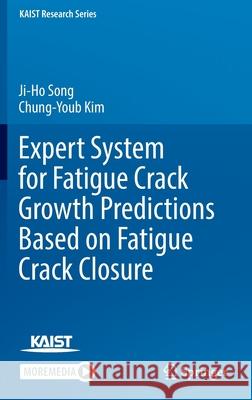Expert System for Fatigue Crack Growth Predictions Based on Fatigue Crack Closure » książka
topmenu
Expert System for Fatigue Crack Growth Predictions Based on Fatigue Crack Closure
ISBN-13: 9789811680359 / Angielski / Twarda / 2022 / 96 str.
Expert System for Fatigue Crack Growth Predictions Based on Fatigue Crack Closure
ISBN-13: 9789811680359 / Angielski / Twarda / 2022 / 96 str.
cena 602,40
(netto: 573,71 VAT: 5%)
Najniższa cena z 30 dni: 578,30
(netto: 573,71 VAT: 5%)
Najniższa cena z 30 dni: 578,30
Termin realizacji zamówienia:
ok. 22 dni roboczych.
ok. 22 dni roboczych.
Darmowa dostawa!
This book demonstrates fatigue crack growth under random loading graphically. This state-of-the-art monograph introduces an expert system for crack growth predictions, particularly based on crack closure. The system is developed after years of research by the authors by using the Math-type software consisting of 5 parts. This system is unique as it is fundamentally different from previous systems as it focuses on fatigue crack growth predictions based on fatigue crack closure. This book can be a useful guide for practicing engineers, researchers, and students in the fields of mechanical, aerospace, or civil engineering.











